Off-Grid Food Storage Solutions Compared: Solar vs. Gas Refrigerators
Living off-grid offers freedom, sustainability, and a closer connection to nature—but it also comes with its own set of challenges. One of the biggest concerns for off-grid dwellers is reliable food storage. When you’re far from supermarkets or convenience stores, keeping your food fresh becomes essential. That’s where refrigeration comes in—but which type works best when you're off the grid? In this article, we’ll compare two popular options: solar refrigerators and gas refrigerators, highlighting their pros, cons, and ideal use cases.
Understanding Solar Refrigerators
Solar refrigerators run on energy produced by solar panels. During the day, sunlight powers the fridge directly or charges a battery that keeps it running through the night.
Pros of Solar Refrigerators:
Eco-Friendly: They utilize renewable energy, which aligns with the goals of sustainable and green living.
Long-Term Savings: Once the system is set up, the sun’s energy is free.
Silent Operation: Most solar fridges run quietly, ideal for peaceful environments.

Cons of Solar Refrigerators:
High Initial Cost: A complete solar setup includes panels, batteries, and an inverter, which can be expensive.
Weather Dependency: Cloudy or rainy days can reduce efficiency, especially if battery backup is limited.
Maintenance: Batteries need to be replaced every few years and require proper handling.
Solar refrigerators are a great fit for users in sunny climates who are ready to invest in a more complex system and are looking for a greener lifestyle.
Exploring Gas Refrigerators
Gas refrigerators, on the other hand, operate using propane, butane, or natural gas. They don’t rely on electricity or solar power, making them an excellent solution for remote areas with limited energy access.
Pros of Gas Refrigerators:
Completely Off-Grid: No need for electricity or solar panels, making them ideal for remote cabins or RVs.
Low Maintenance: Gas fridges are durable and have fewer moving parts, reducing the need for frequent repairs.
Reliable in All Weather: They function consistently regardless of sunlight or temperature fluctuations.

Cons of Gas Refrigerators:
Fuel Cost: You’ll need to purchase and refill gas regularly, depending on usage.
Ventilation Required: Proper ventilation is necessary to safely operate a gas fridge indoors.
Initial Learning Curve: Some users may need time to get used to lighting and managing the gas flow.
For many off-grid homes, cabins, and mobile setups, gas refrigerators offer reliable, consistent cooling without dependence on electricity.
Which Is Right for You?
Choosing between solar and gas refrigeration largely depends on your location, lifestyle, and energy setup. If you live in a permanently sunny region and already use solar power, a solar refrigerator might be the most seamless option. On the other hand, if your off-grid home is in a shaded or variable climate, or if you want a plug-free, simple solution, a gas fridge is likely the better choice.
Why Choose the SMAD Gas Fridge?
At SMAD, we specialize in high-quality, reliable appliances for off-grid living. Our SMAD Gas Fridge combines energy efficiency, low noise, and excellent cooling performance—all without electricity. It's perfect for RVers, tiny home dwellers, and anyone living beyond the grid.
The SMAD Gas Fridge is easy to install, highly durable, and built to perform even in the most remote locations. Whether you’re storing fresh produce, dairy, or beverages, you can count on SMAD to keep your food fresh and safe.
Conclusion
Both solar and gas refrigerators have their unique strengths, and each suits different off-grid living scenarios. If you’re seeking a maintenance-free, dependable cooling solution that works in any climate, the SMAD Gas Fridge is an ideal choice. Reliable, efficient, and designed for freedom—SMAD helps you live comfortably, even miles away from the grid.

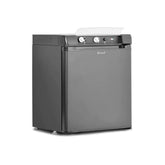

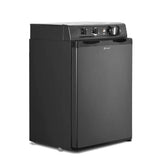
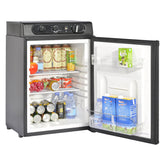
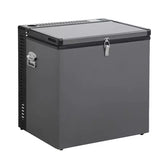
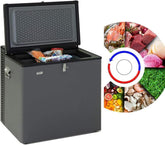
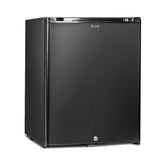
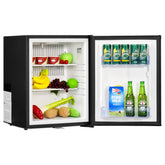
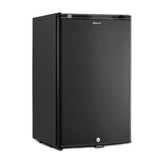
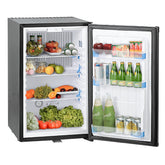
Leave a comment
Please note, comments need to be approved before they are published.